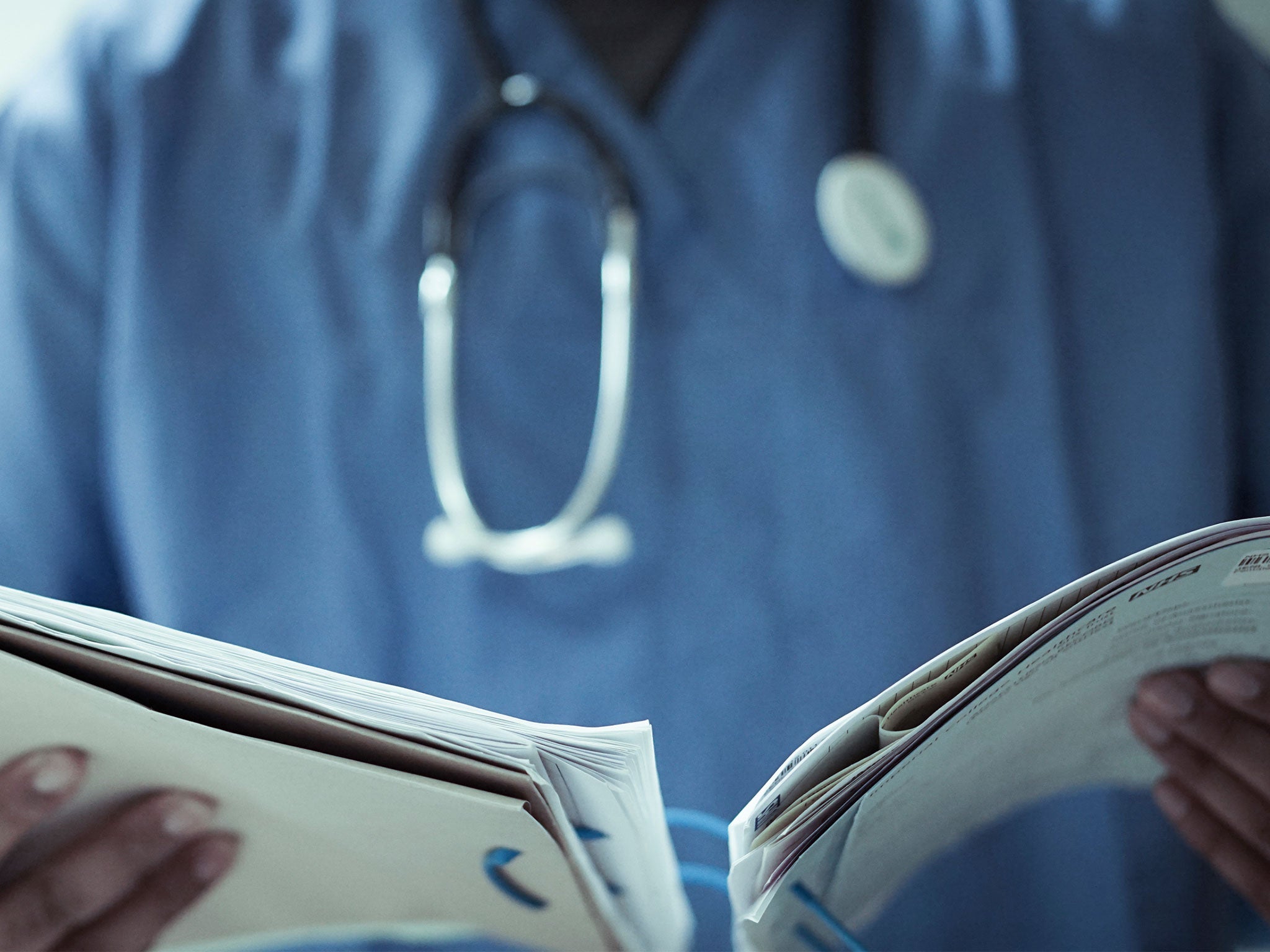‘We are dying in silence’: Living through a pandemic without access to healthcare
Doctors, charities and academics warn that migrants are unable to get the help they need – and it poses a serious risk to public health, writes May Bulman


Your support helps us to tell the story
From reproductive rights to climate change to Big Tech, The Independent is on the ground when the story is developing. Whether it's investigating the financials of Elon Musk's pro-Trump PAC or producing our latest documentary, 'The A Word', which shines a light on the American women fighting for reproductive rights, we know how important it is to parse out the facts from the messaging.
At such a critical moment in US history, we need reporters on the ground. Your donation allows us to keep sending journalists to speak to both sides of the story.
The Independent is trusted by Americans across the entire political spectrum. And unlike many other quality news outlets, we choose not to lock Americans out of our reporting and analysis with paywalls. We believe quality journalism should be available to everyone, paid for by those who can afford it.
Your support makes all the difference.I was crying. I don’t know what to do now,” says Kemi, a Nigerian refugee, describing the moment she was told by a GP’s receptionist that she could not get a prescription for her four-year-old daughter’s eczema cream if she did not have internet.
“I called the GP to say my baby’s cream was finishing,” she explains. “The lady said you cannot ask for prescriptions on the phone anymore, and that it had to be done on email. I told her I don’t have internet. She said sorry she cannot do anything then.”
The 36-year-old, who came to the UK in 2014 after fleeing domestic abuse in Nigeria and was granted refugee status earlier this year, has been worried since that phone call. She said she had bought data for her phone especially to sort out the medication, but that she was still waiting to receive the email she needs to do this.
Kemi also described how, just before the pandemic, she had taken her daughter to the GP because of swelling on her stomach, and that the doctor had said they would refer her to hospital. Days later, the UK went into lockdown, and Kemi was unable to arrange the appointment.
“The doctor didn’t put the correct reference number on the form. I kept calling my GP, and they would say the person who knows how to do it properly is not available,” she says. “I was struggling. I couldn’t even afford to buy credit on my phone. It’s not free to call the hospital. I kept calling, calling. I still couldn’t get the reference number. Now I’ve just left it. I ran out of credit to keep calling them.
“If it were not for the pandemic I would have just walked into the GP surgery myself and sorted it out. But because of the pandemic, I can’t even go anywhere, no one is calling me back, nobody is telling me anything about what’s happening.”
Kemi is one of many migrants in the UK who face barriers when trying to access healthcare, and for whom the pandemic has made this even more challenging. The move to telephone appointments and online subscriptions, as well as a drop in face-to-face support from charities that would usually provide information on accessing medical care, has left people like her considerably more excluded from vital health services.
Not only inhumane but downright dangerous
“It tells me there’s nowhere that you’re safe, even as a refugee in this country. It’s a problem for many people. We are scared. We can’t talk. We are scared to confront the authorities. And now during the pandemic it’s worse because there’s no support. It’s dangerous. We are dying in silence," Kemi adds.
It comes as a coalition of doctors, charities and academics call for “universal and equitable” access to NHS services during the coronavirus pandemic and beyond, warning that failure to include migrant and refugee populations in the UK’s response to the crisis means any public health measures to control the virus would be “ineffective”.
Fifty-nine organisations, including Doctors of the World UK, Lancet Migration and the Faculty of Public Health, say ministers’ first priority must be to immediately suspend the NHS charging regulations, which they say posed a “serious risk” to public health and were causing “unnecessary suffering and death” among vulnerable migrants in the UK.
The groups said that, with Covid-19 cases rising rapidly again and winter fast approaching, ministers must commit to improving access to all NHS services for everyone living in the UK – or risk being unable to overcome the global health crisis.
Anna Miller, Doctors of the World UK head of policy and advocacy, said: “In our clinic we see patients too afraid to go to hospital in case they receive a bill they have no chance of ever being able to pay. Often these are people who are already living in very difficult circumstances, without a secure home or enough money to meet their basic food and clothing needs.
“As we head into winter, no one wants a situation where people can’t get medical help when they need it or are forced to manage health conditions alone. We really need every person and every family to feel safe to go forward to NHS services – including Covid-19 testing services – without the risk of financial or legal consequences.”
Migrants on a visa generally have to pay a surcharge, which MPs recently voted to increase from £400 to £624 from this month, while those without immigration status and asylum seekers with refused claims are charged an inflated 150 per cent of the NHS tariff for their treatment.
NHS trusts must withhold treatment until a patient has paid in full – unless their situation makes their situation “urgent” or “immediately necessary”. But the coalition warns that urgent treatment is often wrongly withheld, leading to treatment being delayed or denied altogether, causing unnecessary suffering and, in some cases, death.
Shams, 43, who has lived in the UK for three years and volunteers with the British Red Cross, said that while he – as an English speaker and someone who has received support from charities – has managed to access medical treatment during the pandemic, he was coming across many others who had not.
The Darlington resident raised concern that many migrants were not aware of the fact that they could access free healthcare by filling in an HC1 form, and that with a steep drop in face-to-face charity support since the start of lockdown, more people were “falling through the cracks”.
“Before we had drop-ins where asylum seekers and refugees could go to get help with accessing healthcare, but with the pandemic everything has closed. This means people don’t know they have a right to healthcare, and the Home Office isn’t telling them, so if they have a problem, they are left by themselves.”
Shams said he had seen cases where people were no able to get prescribed anti-depressants, with serious mental health implications, and one case where a man was suffering serious dental issues that were causing him severe pain, but thought it was not possible to go to the dentist without paying a huge fee – so avoided it.
Labour MP Bell Ribeiro-Addy said charging migrants to use the NHS during the pandemic was “not only inhumane but downright dangerous”, adding: “If the government is serious about tackling health inequality and fighting coronavirus, it must scrap these charges, which can prevent people receiving and coming forward for treatment.”
Chai Patel, legal director at the Joint Council for the Welfare of Immigrants, which has signed up to the campaign, said NHS charging and the “violation” of doctor-patient confidentiality for migrants was deterring people from seeking care during the pandemic.
He added: “This crisis has proved that we’re only as protected as the least protected among us. So as we enter a second wave, it’s vital that the government suspend the hostile environment in our NHS so that we can get through this crisis safely together.”
A Department of Health and Social Care spokesperson said: “No one will be charged for Covid-19 testing, diagnosis or treatment and NHS trusts have also been advised that no immigration checks are required for overseas visitors that are known to be undergoing testing or treatment for Covid-19 only. Services such as NHS 111, primary care and A&E continue to be free of charge to all overseas visitors and we are clear that when charges do apply urgent treatment must never be withheld.”



Join our commenting forum
Join thought-provoking conversations, follow other Independent readers and see their replies
Comments